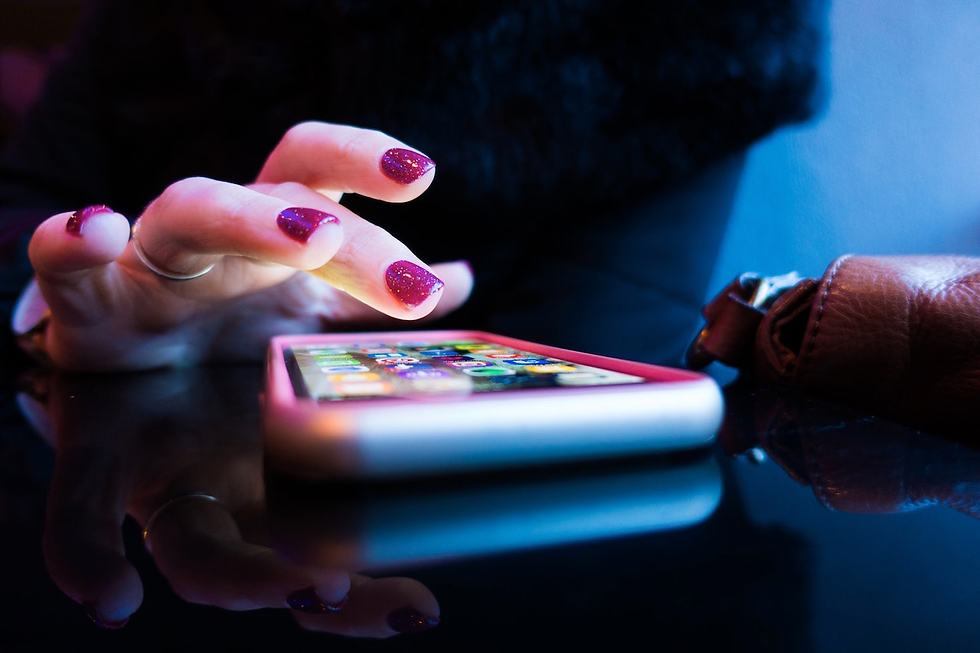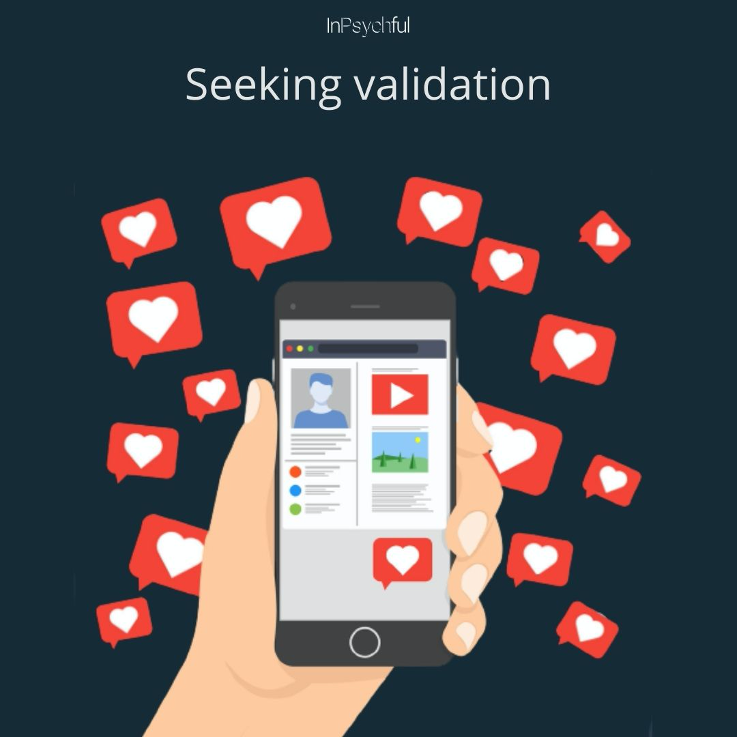Don't be a Slave to Technology
- f15eagle314
- Jan 25, 2022
- 7 min read
If you could go out and find someone in your life who has not used technology in some way, I would be surprised. Technology has become a part of our everyday lives and shaped the way we live. Especially now with Covid-19 still raging around the world, we have never before been so dependent on technology. While technology has brought us the ability to reach each other in the middle of a pandemic and is better than any encyclopedia we could ever hope for, like anything, there are side effects. Many of these side effects have gone ignored by most of the world. We are so engrossed in the uses of our devices that we often fail to see the effect they have on us. Perhaps the most obvious side effect that technology has had on us is the effect it has had on our physical being. This side effect is often noticed and it's effect reduced because many of our parents or guardians would constantly tell us to "GO OUTSIDE." A less obvious side effect that technology has had on us would be the effect on our mental being. More specifically, the effects of social and online media on our mental beings. The effect is so strong that it can change who we are and how we perceive reality. Everything that I say here is my personal opinion and should not be treated as concrete fact.

There are three media truths that I will try to prove and use to show what effects the media has on our mental being. The first is a relatively simple one: We live in a mediated world. This is plainly obvious as stated earlier, technology has become an essential part of our lives. If we were to take a look at the numbers of how many hours we spend on social media and technology, it definitely takes up a large part of our day. At this point in time, I myself have a daily average of thirty-one minutes a day on Instagram, and 3 hours and 28 minutes a day on YouTube. In addition to this, time spent on other apps that don't keep track of how much time I spend on them, plus some video games and some T.V, the numbers really add up. What I do is probably not the same as what you may do, but I'm sure we all spend a lot of time on some sort of device viewing some sort of content. Imagine if all that time I spend watching YouTube I instead spend running ... I'd be really fit.
The next truth is a little more serious and complicated. This truth states that "Media are not just the instruments by which we perceive reality, they become the means through which we contact reality." This is where things begin to get heated up. What does it mean by reality? Reality just means what we define to be real. The idea that media become the means through which we contact reality is touched upon in the documentary "The Social Dilemma." In the documentary, which you can watch here on Netflix, many of the former employees explain how the algorithm used by many companies has learnt to identify different types of people and know what to suggest them to evoke a certain response. This, in certain examples is simply the algorithm providing you with something that interests you, and you clicking on it to learn more. While this can be seen as a good thing, it becomes problematic when the algorithm suggests news articles to you based on your opinions.

You can test this theory in Google right now. Get you and someone else to search up a controversial topic such as "Climate change is..." and see what Google suggests to you. Most likely your search results will not be the same. This algorithm used by many big companies such as Google and Meta, will feed us information based on what our opinions are. No longer does everyone receive the same information, everyone receives a different view based on what their beliefs and opinions are. Take a look at some of the media you receive about a certain topic versus what another person may receive about the same topic. This becomes incredibly dangerous as there is no longer a definite truth that we can all rely on. How can we define what is real when we keep accepting the reality that is given to us? How do we know what is news and what is fake news?
The third truth is perhaps the most dangerous one. The most dangerous to us and the biggest effect on our mental being. The truth states that: Media present information but at the same time, they form values, they shape consciousness, and they forge identity. Digital media has become so intertwined with our lives that it has begun to replace what we think as important. So many people are people, especially teenagers, are obsessed with what they digital person looks like. The "like button" has perhaps become the most influential button in history. When you get a "like" on something you have posted, you get this happy feeling that makes you feel good. But when our posts are disliked, or receive negative comments. Our brains go into a state similar to a body being deprived of something it is addicted to. This of course does not apply to everyone. This is where many mental health problems arise surrounding social media. Our lives become absorbed by our online profiles and the real world loses more and more meaning.

In the old days, our morals, values, and identities would be shaped based on our time spent at home, school, church, and with our family. In my case, having been a Roman Catholic all my life, my family, church, and school have all integrated the values and morals of a someone who lives the Roman Catholic faith. But with religion on the decrease and technology on the rise, these mediums through which I learned my values are being replaced by the media and technology. Success used to be solely measured based on what we do in life and how we communicate the value that we have learned over our lives, but media instead only measures success by profit. How many likes your post got, how many followers you have, how many views your video has, etc. The feeling of doing something good for someone else or yourself is slowly being replaced by measures of social profit.

As we push into the future, these dangerous values are being taught to young children more and more. Children are finding their hands occupied by devices at and earlier and earlier age. This comes with big physical and mental consequences that will affect a child as it grows.
All of these truths communicate the point that media changes us for the worse. From influencing the way we think, to influencing the way we act and what we work to achieve, media is running our lives more than we are. With this massive influence, companies that own these social medias can pit people against each other, send individuals into depression and even possibly turn the tide of an election one way or another. We cannot allow media to define who we are. Each one of us is much more than our online profile. Without realizing it, media is writing our legacies more than we are ourselves. Our legacies revolve around the people we touch and those who remember us. We aren't touching people with our actions if our lives revolve around the device in our pockets and in front of our eyes. We need physical contact, we are social beings. When we immerse ourselves into our devices, we deprive ourselves from the physical and social contact that we need as human beings.

It is essential that we step away from the online media and screens in general, and just spend more time in person with people. It doesn't have to be a big gathering or party. Just simply going for a walk with someone, or having a cup of tea with someone, or playing a short game. Anything to remove the device that we have all plugged into ourselves. One thing that my dad did with me that helped me reduce the time on my devices was that he would give me one phone charge a week. Therefore I would have to last the entire week on one charge. It was tough but manageable. And it worked. Even though I still spend a lot of time on online media, I have reduced it so much compared to what it used to be. Social Media is like a drug. We are all addicted to the glamour of the people we look at and wish we were. But we need to begin to use social media as a tool, and not a way of life.
We need to, as the title of a song goes, "Let Love Win." The song is by artists "TheFatRat" and "Anjulie." It tells us how we need to step out of the holes we have dug ourselves into and "Let Love Win." Whatever problem we are facing, it is best faced with someone who you love. Some of the lyrics connect perfectly with the topic I am writing about here. Whenever I am tempted to stay on my devices and waste my time, I sing myself this verse and it gives me some courage to slowly disconnect myself from my device.
Don't give in
To the sad machine
To the TV screens
Let love win
When it's hard to find
When it's cold outside
This verse urges you to not give in. Just "Let Love Win." No matter how hard it is to pull away, just "Let Love Win." Love is an emotion that connects all human beings. It is an incorruptible emotion that breaks the bonds of any device or media. Find another person, have a social conversation in person, don't look at your devices, just disconnect from the virtual world. These are the first steps to being in control of your life. Your legacy is yours to build, do not let your device define who you are and will be. Break yourself free from the restraints of the media.
Sources
TheFatRat. Lyrics to “Let Love Win.” Azlyrics, 2011, www.azlyrics.com/lyrics/thefatrat/letlovewin.html.
Pictures




Comments